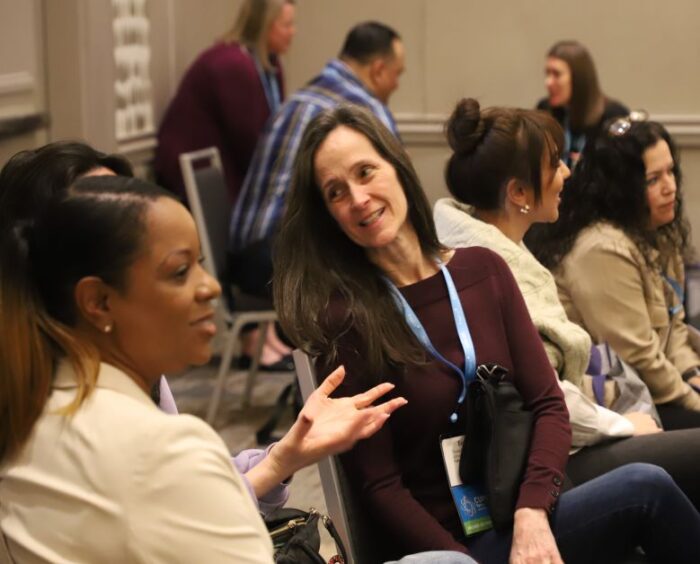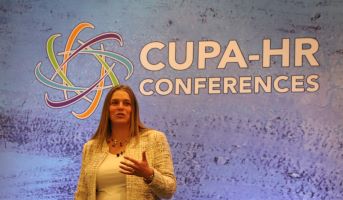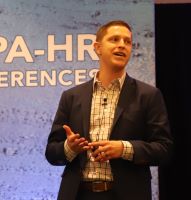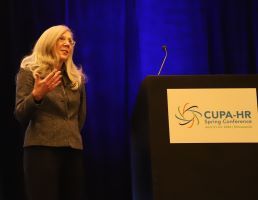Higher education is undergoing rapid transformation — from shifting student demographics to the urgent need for digital agility. At Collegis Education, we’ve navigated a similar journey. What began as a services organization has evolved into a technology-enabled partner, helping institutions thrive amid disruption. And while the journey hasn’t always been easy, one thing has kept us steady through it all: our culture.
When we talk about culture, we’re really talking about who we are when things get hard — how we make decisions, how we treat one another, and how we stay focused on our shared mission even when the future feels uncertain.
At Collegis, our culture is built on four core values that have guided every step of our transformation: authenticity, innovation, commitment, and collaboration. These aren’t just words. They’re the foundation that enables us to stay grounded and keep moving forward — together.
Shared transformation with our partners
Institutions across higher education are also undergoing profound transformation — navigating demographic shifts, evolving technology expectations, and increasing pressure to deliver on access and affordability.
These pressures have tested the resilience of colleges and universities nationwide. Yet just like Collegis, many institutions have found strength by doubling down on their missions and values.
That’s why our relationships with our partners are so strong. We understand that mission-driven organizations operate with purpose, and so do we. Higher education is about service, learning, and impact. At Collegis, our purpose is to help institutions live that mission more effectively through innovation, data, and technology — while never losing sight of the human side of education.
Authenticity in action: How trust drives transformation
Transformation requires honesty. Honesty about what’s working, what isn’t, and what comes next. Like many institutions, we’ve made difficult decisions in recent years. We’ve rethought how we serve our partners, restructured internally, and evolved how we operate.
Throughout these moments, authenticity has been our anchor. We communicate openly, acknowledge challenges, and lead with transparency to build trust.
It also means bringing our true selves to work. The people who thrive at Collegis are those who lead with integrity, admit mistakes, and approach challenges with humility and purpose. That creates space for bold ideas and genuine growth.
Authenticity connects us to our partners as well. Institutions strive to build cultures of empathy, honesty, and integrity — just like we do. It’s a value that runs deep across the higher ed ecosystem.
Innovation that moves us forward
Change is accelerating. The ability to innovate isn’t just a differentiator — it’s a requirement.
At Collegis, innovation is about more than technology. It’s how we think. It’s how we tackle complex challenges, experiment with new ideas, and find better ways to deliver value.
We’ve seen innovation in action across our organization — in the development of Connected Core®, in our use of AI to personalize student experiences, and in our operations teams that continuously improve how we work.
Our partners are innovating too. From program design to data strategy to student engagement, institutions are finding new ways to serve their communities. Together, we’re helping higher ed adapt and thrive.
Commitment that never wavers
Change tests commitment. It’s easy to be dedicated when things are smooth. It’s much harder when goals shift, markets move, or resources tighten.
What’s impressed me most about our Collegis team is the depth of commitment I see every day. Our people lean in. They solve problems, meet deadlines, and show up for one another and for our partners.
That same spirit exists across the institutions we serve — a relentless focus on students, on mission, and on progress. It’s what fuels our shared success.
Collaboration that scales
No transformation succeeds in isolation. Every major milestone we’ve achieved at Collegis has happened because of collaboration across disciplines, departments, and partner campuses.
Our strength comes from diverse perspectives — technologists, strategists, enrollment experts, marketers, and more — working together to deliver real outcomes.
Higher education is built on collaboration, too. Shared governance, interdisciplinary research, cross-campus teamwork — it’s all about connection. And that’s where we thrive.
Culture is our constant
We’re living in an era of rapid change. The pace of advancement, the evolving needs of students, and the challenges facing institutions demand agility and resilience.
In that context, culture is our constant. It’s what grounds us. It defines how we show up for one another and for our partners.
Culture doesn’t eliminate uncertainty. But it gives us confidence in how we face it — with respect, dignity, and shared purpose.
Staying grounded in what matters most
We’re proud of how far we’ve come, and we’re even more excited about where we’re headed. Our transformation didn’t happen by chance. It happened because our people chose to lead with authenticity, innovate boldly, stay committed, and collaborate with purpose.
Those values mirror the best of what higher education stands for. We’re honored to work alongside mission-based institutions shaping lives and strengthening communities.
As we continue to evolve, one thing won’t change: our shared belief in dignity, respect, and building organizations that reflect the best of who we are.
If we stay grounded in those values — as a company and as a community of partners — there’s nothing we can’t achieve together.






